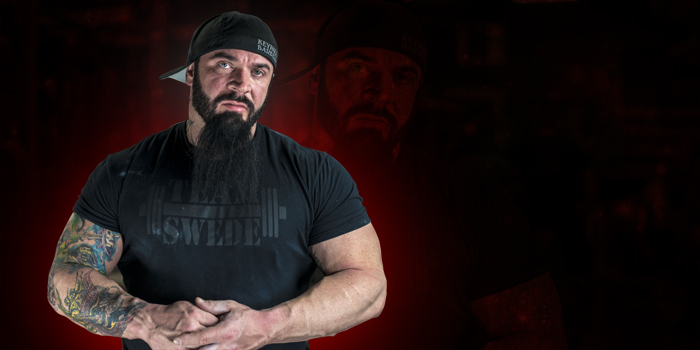
Back pain changes everything.
A traveling businessman at the table next to me explains to his friend about how he can't punish his daughter by taking away her cell phone, because then he can't get ahold of her and it backfires on him. His friend doesn't care at all. He just looks around the room and shakes his head in response to everything the first man is saying.
My food is awful. It's a Chili's chain restaurant. The airport locations only give you a few menu items to pick from and all of the food is prepared in advance and tastes like frozen microwave meals. My waiter tries to rush me, but fuck him.
I am overcome like I haven't been in years with a sense of dread. I feel despondent. The nerve pain is back. The same pain that once took my ability to walk, or even stand, has reared it's head to remind me just how weak I can be.
The thought parades in my mind that a plane will take off for Alaska with my giant body inside of it, crammed into a seat far too small under normal circumstances, forget about the miserable things they are right now.
RECENT: Metabolic Stress Based Hypertrophy Training
The businessman is talking about his income changing and providing reports. He chews his food as though it has done him wrong somehow, as though he is just now realizing that he is angry at every bite.
My plate is empty and the waiter wants me to leave. I don't have anywhere to go for hours at least.
The first man takes pictures of all his receipts and emails them to himself and he has a desktop folder called "receipts." He drags the pictures into the folder when he opens the emails on his computer. I only know this because he is explaining it in unnecessary detail and at high volume to his companion, who could not possibly be showing less interest.
My mouth is dry and my back is electric. I cannot bear to sit any longer. This is what it is to suffer.
I've been here before. It's hard to accept it, but I have myself to blame. A mistake I would tear into one of my lifters for, and one I will not soon forget.
I am back from Alaska, another seminar in the books, and I am 100% pain free again. Crisis averted, right? Well, it's a little more complicated than that. Let me walk you from there to here and explain where things went wrong, and how I've begun to get myself back on track.
Nerve pain is not the sort of thing you can hide easily. Though, I do have a good amount of experience doing it, as many of you know. At least, those of you who read my memoir series, "How The Mighty Fall," about my spinal injury and the resulting surgery I needed to have.
But even if I was able to hide my nerve pain completely, I'd still have to be honest about it in order to avoid doing the things which made it unbearable, like sitting in a chair the way a normal human being does, or riding in a car. So, I was pretty open about it.
The first thing people do when they find out is ask how it happened. How did I re-injure my spine?
Most people don't understand the nature of nerve pain or spinal injuries. You see, rarely are these things the result of a single trauma. Rather they are the cumulative effect of a much larger number of micro-traumas.
The straw that broke the camels back is not usually what did the deed as much as the load it was carrying already. Dropping a quarter ton on my chest was an exception.
Most people who suffer back pain have issues with the coordination and proper activation of the muscles responsible for abdominal bracing. This is no coincidence.
These muscles are, in no particular order the internal and external obliques, transverse abdominus, rectus abdominis, lats, spinal erectors, and QL. I'm simplifying here for the sake of the point I am making, but that's the big stuff. In order to properly brace, all of these muscles must be simultaneously active and working together as a system.
The more I work with lifters on bracing, the more I realize that almost everyone has room for improvement in this department. And even once they have it down, everyone should be doing activation drills for this type of stiffening on a regular basis. I am no exception.
In fact, having a section of my spine which is compromised, it's doubly important for me. I take responsibility for my mistakes, and I do think the situation I'm in could have been avoided. I didn't make it through the years of heavy lifting since my surgery, almost entirely pain free, by luck. I've been sticking to the game plan I laid out early on, and up until the period before the nerve pain started, that included prioritizing proper mechanics in my everyday life.
I haven't done one training session which was not preceded by the bracing/activation protocols I recommend. However, my mechanics in day-to-day activities did gradually decline over time.
When I reached to pick up a 45-pound plate, or sat down into a chair, or bent over to pick something off the floor, I allowed myself to slip into a pattern of not using the best posture and not bracing. It's easy to do when you feel strong and aren't in pain, and something I am constantly on others about.
The bracing protocols can teach you how to activate all the muscles you need and how it should feel when you do these small things, but it's up to you to be vigilant with that day-to-day stuff. For most lifters who suffer back pain, it isn't just the lifting that's causing it; it's all the small tasks in and outside of the gym that we don't take seriously.
Those things added up for me. Between that and the fact that I've become really strong again (so I'm working with relatively heavy weights in training), it only took a very small straw to break the proverbial camel's back.
So how did I re-injure my spine? I didn't. There was no acute injury to speak of. My back was feeling shitty for a bit and then one day after a workout that consisted of pull ups and face pulls, I had some gnarly nerve pain which it took a couple of weeks for me to calm down. There were a bunch of warning signs, which I disqualified as anxiety leading up to it, but it was after that training session when I knew I was in trouble. The nerve pain got very real all at once.
I got a lot of really good questions about back pain and breathing during training in a post I made on facebook this week, and there were some truly fucking stupid answers offered from the peanut gallery, like "use a foam roller and stretch."
Because of that, I wanted to take the opportunity to explain a little bit about my experience and the nature of back pain in this article. Also, I will lay out for you all what I do and have done recently to bring myself from misery back to pain-free living in a very short period of time. I will cover the basics of proper breathing for a lifter in my next article, since the two are interconnected and there were a good deal of questions about that topic as well.
Don't let the neck and hand tattoos fool you — I am not a doctor, so this is certainly not to be taken as medical advice. It's simply some of the stuff myself and my lifters at keyhole and around the world have found to be effective for us when the need has arisen.
First, here is how I handled the recent flare up, along with a timeline of events and the level of pain I was suffering.
Day 1: Constant, crippling pain after training. I cursed a lot and yelled at people for shit that was not their fault.
Day 2: Constant, crippling pain. I got my shit together and apologized to everyone I yelled at. Then I came up with a new game plan and committed to it. See New Game Plan below.
Day 3: Constant, crippling pain. Stuck to the plan, got a massage.
Day 4: Crippling pain when seated, manageable pain when standing or laying flat. Stuck to the plan, got a massage.
Day 5: Crippling pain when seated, like on an 8-hour flight to Alaska, manageable pain when standing or laying flat. Stuck to the plan. I even had to steal a wheel chair to put my bags in, so I wouldn't have to carry them around the airport.
Days 6-10: Intermittent pain. Stuck to the plan.
Days 10-present: Pain Free. Stuck to the fucking plan.
Notice that the pain did not stop or even improve right away and once it did, I still stuck to the plan.
New Game Plan
1. No axial loading of the spine for at least 30 days, not even carrying things that weigh more than ten pounds. This would probably be overkill for most people, but I have a preexisting discogenic injury (and complex surgery) to consider. If something has irritated that, I don't want to make it worse.
2. Perform the bracing/activation protocol I outlined in my previous article "Beyond the Barbell": two to three times per day, everyday.
3. Prioritize proper mechanics and bracing in day-to-day tasks.
4. Whenever possible, avoid anything that irritates the nerve or causes pain.
The biggest thing to take away here is that I am laying off of loading the spine at all. Lifters with back pain seem to refuse to lay off the lifting, no matter what. Anything else they are willing to try, but not that.
Why are there so few success stories when it comes to back pain among lifters? They insist on continuing to load the spine while injured and invariably make things worse.
"Foam roll and do some stretching."
Cool story, bro. Let me know how that works out for you.
If you are just having some soreness or irritation, the bracing drills will do the trick 99 out of 100 times. But if you are experiencing nerve pain of any kind, fucking stop and take a step back. Seek the guidance of a physician.
That is a warning sign of the highest order. Learn from my mistakes. Ignoring nerve pain is how I ended up unconscious, covered in my own puke and in an ambulance shortly after.
In my experience, a period of recovery with no axial loading has been necessary in order to return to training and even normal activities anytime that things have been serious enough to bring about nerve pain. I've seen this many times.
I've had to do it myself a couple of times in the last two years. It sucks and mentally I suffer during that period, but I just focus on the things I can do in the meantime. The sooner I've caught it, the less time I've needed to recover and begin to load the spine again.
I hope this has been helpful and if you found it interesting, please share it. I will update you all with how things are progressing next time when I cover the topic of breathing as it pertains to the lifter.










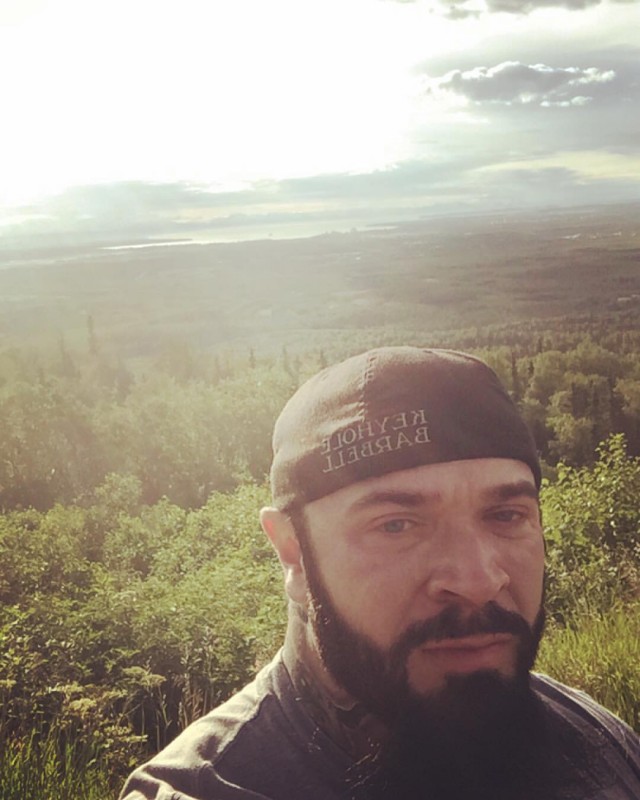
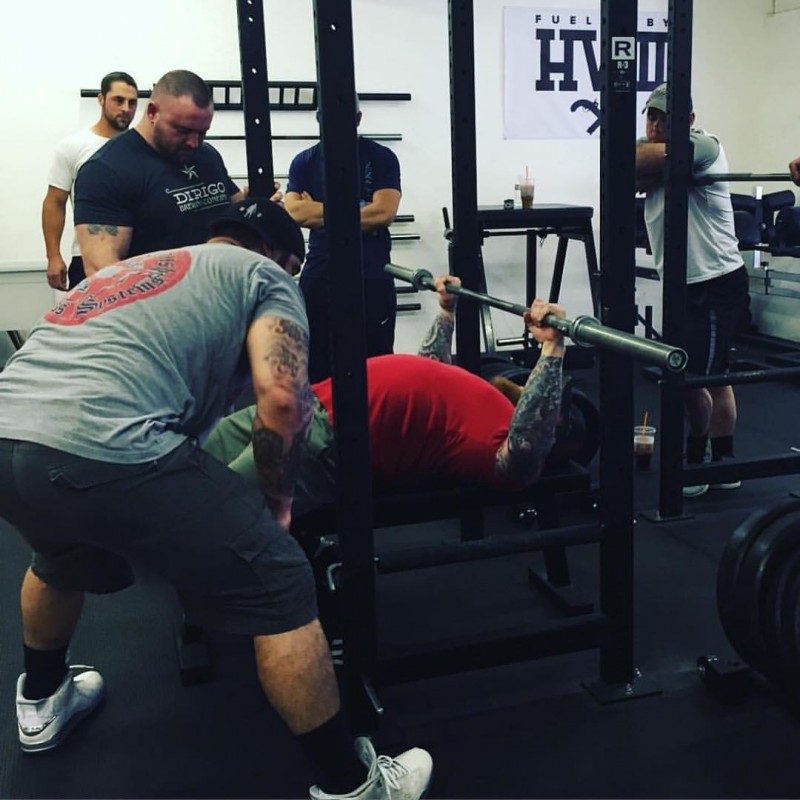
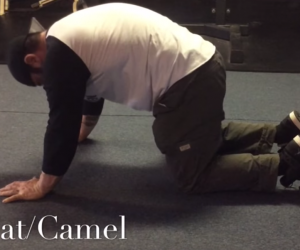
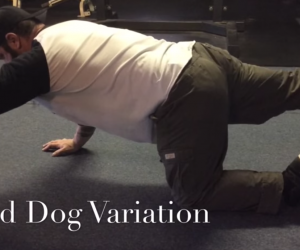
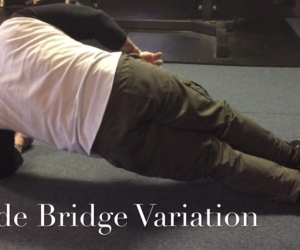
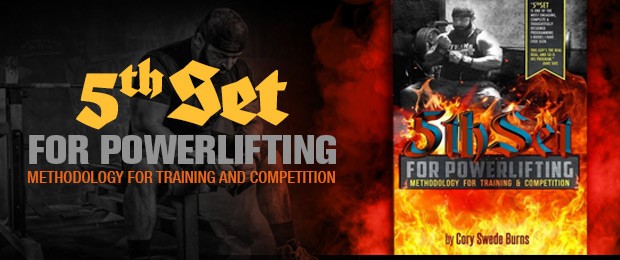
These articles are great. A lot of us are benefiting from your experience and I wanted to say 'thank you'.